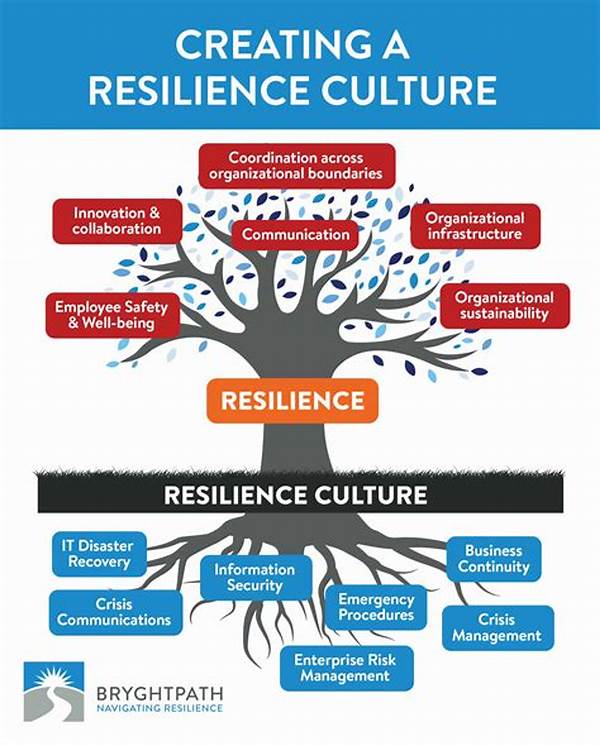
Crisis Management Through Community Support
- Daniel Anderson
- 0
- Posted on
In times of uncertainty and turmoil, the power of a united community can be the beacon of hope that guides individuals and groups through challenging times. Crisis management through community support isn’t just a policy; it’s a lifeline that enhances resilience and fosters solidarity. This article explores the profound impact of community-driven crisis response and its transformative potential.
Read Now : Moonshine Distilleries In Appalachian Mountains
The Heart of Community Support
When it comes down to the nitty-gritty of dealing with crises, nothing beats the good ol’ power of people coming together. Whether it’s tackling natural disasters, economic downturns, or global pandemics, crisis management through community support plays a pivotal role. Communities act as the first responders, providing not just physical assistance like food and shelter but also emotional and psychological support. It’s about people showing up for each other, lending a hand, and sometimes just being there to listen. This network of support becomes the backbone of recovery, helping those affected to rebuild and recover with dignity and resilience. So, when the chips are down, it’s often the local folks that prove that together, we can tackle just about anything.
Why Community Matters in Crisis
1. Strength in Numbers: It’s simple, really. Crisis management through community support shows that many hands make light work.
2. Resource Sharing: When everyone pulls together, there’s enough to go around, whether it’s food or other resources.
3. Moral Support: A little “You got this!” goes a long way, with crisis management through community support boosting morale.
4. Shared Wisdom: The collective intelligence of a community often leads to innovative solutions.
5. Resilience Building: With crisis management through community support, communities bounce back stronger, learning and evolving from each challenge.
Read Now : Instant Headache Soothing Solutions
Navigating Tough Times Together
In the chaos that often accompanies a crisis, a close-knit community can be a solid rock. Crisis management through community support hinges on shared goals and mutual respect. It’s about building bridges and not walls, finding common ground, and understanding that everyone brings something to the table. When a community stands united, they create a support system that withstands trials and tribulations, showing that humanity’s warmth is unrivaled. This shared experience not only helps the community come through the crisis but often leaves it tighter and more cooperative than before. The beauty of it lies in the fact that in helping others, community members find themselves healing and becoming more resilient as well.
Community as the First Line of Defense
The moment trouble strikes, it’s often not the distant authorities but the local community that takes the first step. Crisis management through community support sees neighbors coming out to check on each other, local shelters opening their doors, and food pantries increasing their hours. It’s the spontaneous acts of kindness, like a neighbor offering a generator or a stranger dropping off meals, that make a difference. These instant responses are crucial in providing the much-needed buffer before official help arrives. The local knowledge and resources mean immediate needs are met, showing how communities can swiftly adapt and respond.
Building Networks of Care
Over the long haul, building networks of care is essential. The success of crisis management through community support often depends on these networks being in place before a crisis even starts. Local organizations and leaders play an essential role in weaving these networks, ensuring that when disaster does strike, there’s already a framework ready to swing into action. These groups plan and strategize, identifying the community’s vulnerabilities and strengths, coordinating resources, and ensuring everyone knows their role. With robust networks, communities aren’t just waiting for the next crisis; they’re prepared to tackle it head-on.
Tying It All Together
In conclusion, the essence of crisis management through community support is about recognizing the inherent strength and capabilities within every community. It’s about harnessing the collective power, wisdom, and compassion that’s often overlooked. In managing a crisis, community support isn’t merely a strategy—it’s a testament to human resilience and solidarity. By recognizing and respecting the potential of community efforts, crises no longer seem insurmountable. Instead, they become opportunities for cooperation and growth, leaving communities not just surviving but thriving amidst challenges. Whether it’s through organized networks or spontaneous acts of kindness, there’s undeniable power in people joining forces to move through difficulties together.